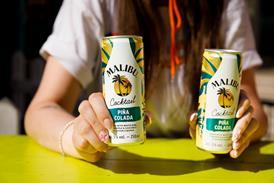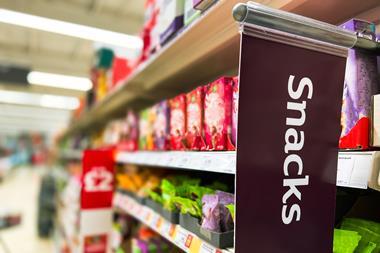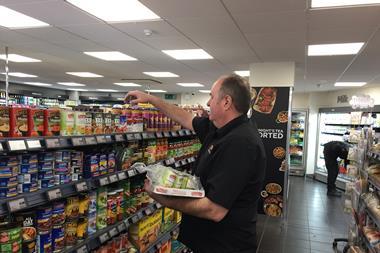Strict rules on school dinners won't necessarily make pupils eat healthily, says Kevin Hawkins
Not long ago I read the following headline in a national newspaper: 'Liver and spinach on computerised menu spell end of school dinners, say caterers'.
The article revealed that the Schools Food Trust was attempting to impose 14 nutritional standards, including calorie content, fat, proteins and vitamins, on all meals served in secondary schools. So burgers, chips and baked beans would be out and green cabbage, brown rice and chicken stir fry in. Isn't this a good thing, you may say? Surely we need more drastic action to stop teenage fatties getting even fatter? Nothing else has worked up to now - maybe this will.
Maybe, but the omens are not good. Caterers point out that they will have to buy costly computer equipment to calculate the nutritional content of every meal because their compliance will be externally monitored. They will also be obliged to replace the multiple choice buffet common in most schools with a set two-course menu conforming to the new standards. Whether schools will be able to prepare and serve a two-course meal to hundreds of pupils in forty minutes seems unlikely.
Many caterers will cope only if demand for their services falls dramatically, which is precisely the outcome they are predicting. The take-up rate of school meals in secondary schools in 2007 was, at 38%, 5% down on the previous year and this decline will almost certainly continue. Many of the intended recipients of these conforming meals will simply vote with their feet and eat elsewhere, no doubt consuming food that doesn't come up to the Food Trust's standards.
Anticipating this outcome, the Trust has come up with an all-too-predictable solution. It has recently spent some of its £15m budget on producing a 'junk food temptation league table' ranking the number of retailers of these forbidden foodstuffs by location. The Trust is now urging schools to ban pupils from leaving school premises at lunchtime. In the unlikely event schools follow this inane advice, most pupils will simply bring their own lunch .
Here we have yet another example of how centrally driven targets that seek to change the way people behave can be counter-productive. "Dost thou think, because thou art virtuous, there will be no more cakes and ale?" asks Sir Toby Belch in Twelfth Night. Not if this paragon of the nanny state can help it.
Kevin Hawkins is an independent retail consultant.
Not long ago I read the following headline in a national newspaper: 'Liver and spinach on computerised menu spell end of school dinners, say caterers'.
The article revealed that the Schools Food Trust was attempting to impose 14 nutritional standards, including calorie content, fat, proteins and vitamins, on all meals served in secondary schools. So burgers, chips and baked beans would be out and green cabbage, brown rice and chicken stir fry in. Isn't this a good thing, you may say? Surely we need more drastic action to stop teenage fatties getting even fatter? Nothing else has worked up to now - maybe this will.
Maybe, but the omens are not good. Caterers point out that they will have to buy costly computer equipment to calculate the nutritional content of every meal because their compliance will be externally monitored. They will also be obliged to replace the multiple choice buffet common in most schools with a set two-course menu conforming to the new standards. Whether schools will be able to prepare and serve a two-course meal to hundreds of pupils in forty minutes seems unlikely.
Many caterers will cope only if demand for their services falls dramatically, which is precisely the outcome they are predicting. The take-up rate of school meals in secondary schools in 2007 was, at 38%, 5% down on the previous year and this decline will almost certainly continue. Many of the intended recipients of these conforming meals will simply vote with their feet and eat elsewhere, no doubt consuming food that doesn't come up to the Food Trust's standards.
Anticipating this outcome, the Trust has come up with an all-too-predictable solution. It has recently spent some of its £15m budget on producing a 'junk food temptation league table' ranking the number of retailers of these forbidden foodstuffs by location. The Trust is now urging schools to ban pupils from leaving school premises at lunchtime. In the unlikely event schools follow this inane advice, most pupils will simply bring their own lunch .
Here we have yet another example of how centrally driven targets that seek to change the way people behave can be counter-productive. "Dost thou think, because thou art virtuous, there will be no more cakes and ale?" asks Sir Toby Belch in Twelfth Night. Not if this paragon of the nanny state can help it.
Kevin Hawkins is an independent retail consultant.













No comments yet